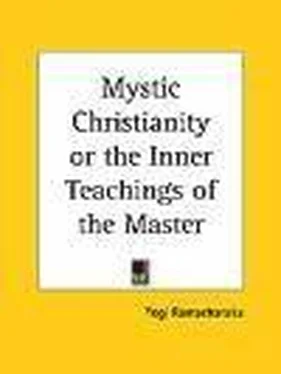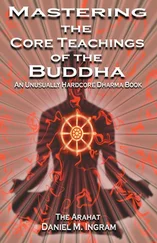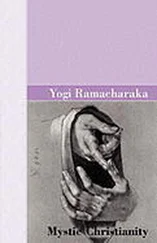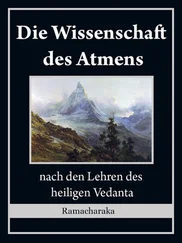Luke's account is as follows:
"And in the sixth month the angel Gabriel was sent from God unto a city of Galilee, named Nazareth, to a virgin espoused to a man whose name was Joseph, of the house of David; and the virgin's name was Mary. And the angel came in unto her and said, Hail, thou that art highly favored, the Lord is with thee: blessed art thou among women. And when she saw him she was troubled at his saying, and cast in her mind what manner of salutation this should be. And the angel said unto her, Fear not, Mary: for thou hast found favor with God. And, behold, thou shalt conceive in thy womb, and bring forth a son and shalt call his name JESUS. He shall be great, and shall be called the Son of the Highest; and the Lord God shall give unto him the throne of his father David. And he shall reign over the house of Jacob forever; and of his kingdom there shall be no end. Then said Mary unto the angel, How shall this be, seeing I know not a man? And the angel answered and said unto her, The Holy Ghost shall come upon thee, and the power of the Highest shall overshadow thee: therefore also that holy thing which shall be born of thee shall be called the Son of God." (_Luke 1:26-33._)
And so, this then is the commonly accepted, orthodox teachings of Christian theology. It is embodied in the two best-known creeds of the church and is made an essential article of belief by the majority of the orthodox churches.
In the Apostle's Creed, which has been traced back to about the year A.D. 500, and which is claimed to have been based on an older creed, the doctrine is stated thusly: "… and in Jesus Christ, his only Son, our Lord, who was conceived by the Holy Ghost, born of the Virgin Mary," etc. In the Nicene Creed, which dates from A.D. 325, the doctrine is stated thusly: "… and in one Lord Jesus Christ, the only begotten Son of God, begotten of his Father… and was incarnate by the Holy Ghost of the Virgin Mary," etc.
And so, the doctrine is plainly stated and firmly insisted upon by the orthodox churches of today, although such was not always the case for the matter was one which gave rise to much conflict and difference of opinion in the early centuries of the Church, the present view, however, overcoming those who opposed it, and finally becoming accepted as beyond doubt or question by the orthodox, believing Christian.
But the present time finds many leading minds in the churches, who refuse to accept the doctrine as usually taught, and the voice of the Higher Criticism is heard in the land in increasing volume and many doctrines unquestioningly held by the pews are being abandoned by the pulpits, usually in the way of "discreet silence" being maintained. But here and there courageous voices are heard stating plainly that which their reason and conscience impels. We shall now consider these dissenting opinions.
We have to say here, at this point, that we have no sympathy for the so-called "infidel" opinion, which holds that the whole tale of the Virgin Birth was invented to conceal the illegitimate birth of Jesus. Such a view is based neither on intelligent investigation or criticism, or upon the occult teachings. It was merely "invented" itself, by those who were unable to accept current theology and who, when driven from the churches, built up a crude system of reconstructed Biblical History of their own. And so we shall not stop to even consider this view of the matter, but shall pass on to the scholarly objectors and their views and thence to the Occult Teachings.
In the first place, the theologians who favor the views of the Higher Criticism object to the idea of the Virgin Birth upon several general grounds, among which the following are the principal ones:
(1) That the story of the Divine Conception, that is the conception by a woman of a child without a human father, and by means of a miraculous act on the part of Deity, is one found among the traditions, legends and beliefs of many heathen and pagan nations. Nearly all of the old Oriental religions, antedating Christianity by many centuries, contain stories of this kind concerning their gods, prophets and great leaders. The critics hold that the story of the Virgin Birth and Divine Conception were borrowed outright from these pagan legends and incorporated into the Christian Writings after the death of Christ;
(2) that the idea of the Virgin Birth was not an original Christian Doctrine, but was injected into the Teachings at a date about one hundred years, or nearly so, after the beginning of the Christian Era; this view being corroborated by the fact that the New Testament Writings themselves contain very little mention of the idea, the only mention of it being in two of the Gospels, those of St. Matthew and St. Luke-St. Mark and St. John containing no mention of the matter, which would not likely be the case had it been an accepted belief in the early days of Christianity-and no mention being made of it in the Epistles, even Paul being utterly silent on the question. They claim that the Virgin Birth was unknown to the primitive Christians and was not heard of until its "borrowing" from pagan beliefs many years after. In support of their idea, as above stated, they call attention to the fact that the New Testament writings, known to Biblical students as the oldest and earliest, make no mention of the idea; and that Paul ignores it completely, as well as the other writers;
(3) that the Gospels of St. Matthew and St. Luke bear internal evidences of the introduction of the story at a later date. This matter we shall now consider, from the point of view of the Higher Criticism within the body of the Church.
In the first place, let us consider the Gospel of St. Matthew. The majority of people accept this as having been written by St. Matthew, with his own hand, during his ministry; and that the Gospel, word for word, is the work of this great apostle. This idea, however, is not held for a moment by the educated clergy, as may be seen by a reference to any prominent theological work of late years, or even in the pages of a good encyclopedia. The investigators have made diligent researches concerning the probable authorship of the New Testament books and their reports would surprise many faithful church-goers who are not acquainted with the facts of the case. There is no warrant, outside of tradition and custom, for the belief that Matthew wrote the Gospel accredited to him, at least in its present shape. Without going deeply into the argument of the investigators (which may be found in any recent work on the History of the Gospels) we would say that the generally accepted conclusion now held by the authorities is that the Gospel commonly accredited to St. Matthew is the work of some unknown hand or hands, which was produced during the latter part of the first century A.D., written in Greek, and most likely an enlargement or elaboration of certain Aramaic writings entitled, "Sayings of Jesus," which are thought to have been written by Matthew himself. In other words, even the most conservative of the critics do not claim that the Gospel of St. Matthew is anything more than an enlargement, elaboration or development of Matthew's earlier writings, written many years before the elaboration of the present "Gospel." The more radical critics take an even less respectful view. This being the fact, it may be readily seen how easy it would have been for the latter-day "elaborator" to introduce the then current legend of the Virgin Birth, borrowed from pagan sources.
As a further internal evidence of such interpolation of outside matter, the critics point to the fact that while the Gospel of Matthew is made to claim that Joseph was merely the _reputed father_ of the child of Mary, the same Gospel, in its very first chapter (_Matt. 1_) _gives the genealogy of Jesus from David to Joseph_ the husband of Mary, _in order to prove that Jesus came from the "House of David_," in accordance with the Messianic tradition. The chapter begins with the words, "The book of the generation of Jesus Christ, the son of David, the son of Abraham" (_Matt. 1_), and then goes on to name fourteen generations from Abraham to David; fourteen generations from David to the days of the carrying away into Babylon; and fourteen generations from the Babylonian days until the birth of Jesus. The critics call attention to this _recital of Jesus's descent, through Joseph, from the House of David_, which is but one of the many indications that the original Matthew inclined quite strongly to the view that Jesus was the Hebrew Messiah, come to reign upon the throne of David, rather than a Divine Avatar or Incarnation.
Читать дальше












